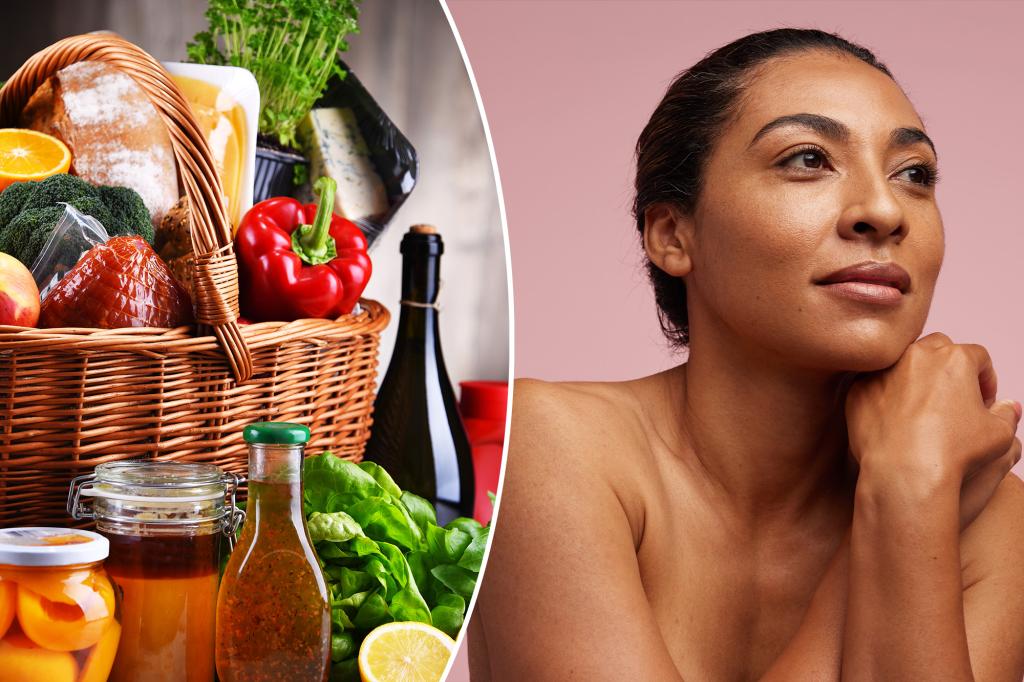Here’s the real bee’s knees.
Skincare companies might have you believing you need expensive serums and seven-step routines to maintain that youthful glow.
But some experts say the real secret to a perfect complexion is hiding in your cupboard.
Olga Skydan, a licensed esthetician and dermatologist at the face yoga app Luvly, crows that “raw honey is lowkey magic.”
“It’s a natural humectant, which means it draws moisture from the air into your skin and helps hold it there,” she told The Post.
“On top of that, honey is rich in skin-supportive nutrients like amino acids, B vitamins, zinc and trace enzymes — key ingredients in healing and strengthening the skin barrier,” she added. “It has gentle exfoliating features too, so it can make skin smoother and more radiant.”
Raw honey also boasts natural antibacterial powers thanks to its hydrogen peroxide content — making it a surprising ally in the fight against breakouts.
“The antibacterial features in raw honey are extremely helpful if you’re acne-prone or dealing with breakouts that don’t respond well to typical skin care,” Skydan said.
“With that in mind, you can use it as a spot treatment or a preventive mask.”
Plus, antioxidants in the golden goo help neutralize the free radicals that cause aging and dullness.
“They protect your skin from daily stressors,” she said.
“Free radicals damage cells and accelerate aging, while antioxidants in honey help neutralize those free radicals before they cause long-term skin damage.”
But before you slather on whatever honey is on sale at your local supermarket, you should know that only the raw, unpasteurized kind will do.
“Raw honey is unpasteurized, or simply put, it hasn’t been overly processed, and it’s exactly why it works better for skin,” Skydan said.
“Once honey is heated, it loses a large percentage of its beneficial enzymes and natural acids,” she continued. “Raw honey, on the other hand, still has all of those active elements. It also tends to have a thicker texture that makes it easier to use in DIY masks or scrubs without dripping everywhere.”
While Skydan noted that honey is generally safe for most skin types, there are some exceptions — such as people allergic to bees or bee byproducts.
If you have very sensitive skin, she recommends testing it out on a smaller patch before applying it to your face.
“A good way to check your skin’s reaction is to apply a bit of honey to the inside of your wrist or forearm and leave it on for 24 hours,” she said.
“If there’s no redness or irritation, it’s likely safe for your face. And always avoid putting honey to open wounds, where it could trap bacteria or delay healing.”
Skydan’s five suggestions for a sweet glow-up
- Honey + coffee body scrub: Mix equal parts honey and ground coffee, add a little olive oil and scrub in the shower. Only use once a week since coffee grounds are a physical exfoliant that can lead to irritation or microtears.
- Honey spot treatment: Dab a small amount directly onto any blemish, let it sit for 20 minutes and rinse. This can be done daily.
- Honey overnight hair serum: Mix a teaspoon of honey with a little leave-in conditioner and smooth it through dry ends before bed. Try this once or twice a week.
- Honey glow face mask: Mix honey with a little bit of yogurt and a few drops of lemon juice, then apply it to clean skin for 10-15 minutes. Employing this full-face mask a few times a week is ideal.
- Honey nail and cuticle repair: Mix honey with a small amount of coconut or jojoba oil and gently massage it into your nails and cuticles. This can be done nightly.
Finally, bear in mind that raw honey is pretty thick and sticky on its own, so it’s best to mix with other products.
“When you blend honey with yogurt, it thins out the texture and adds mild exfoliation, which helps dissolve dead skin cells and brightens the complexion,” Skydan explained.
“Then, if you add a few drops of lemon juice, it introduces vitamin C and astringent properties for anyone dealing with dark spots or oily skin. Although that one should be used with caution on sensitive skin.”
It sure beats bananas, anyway!
Read the full article here

